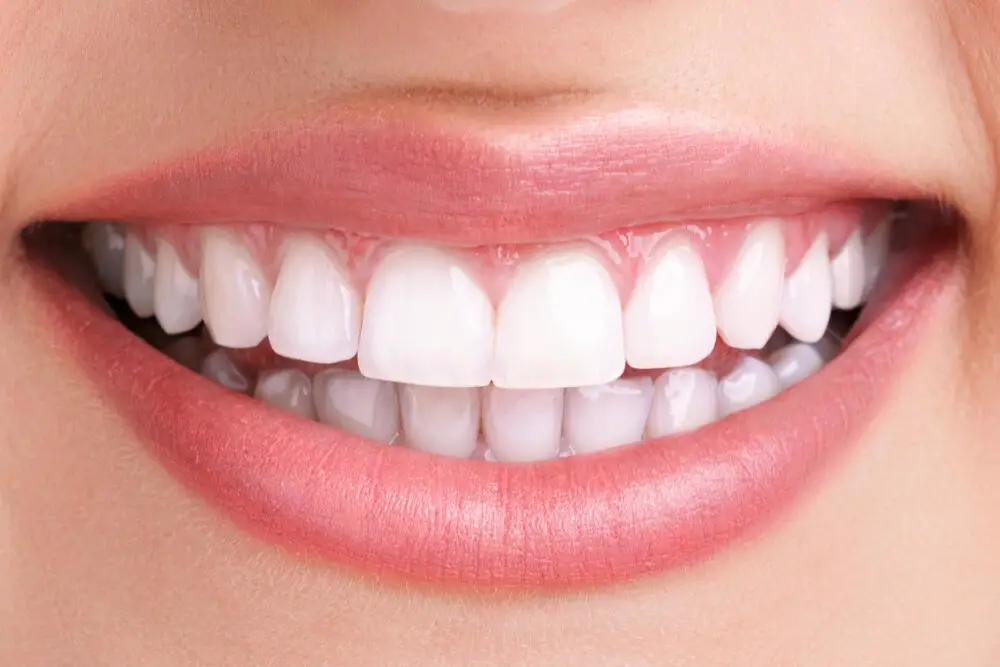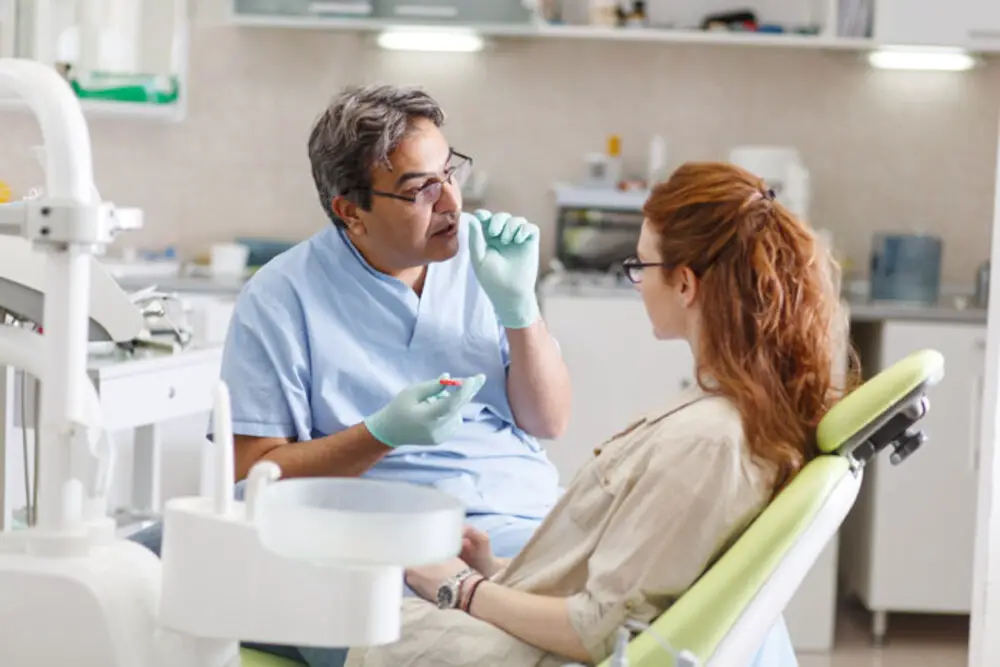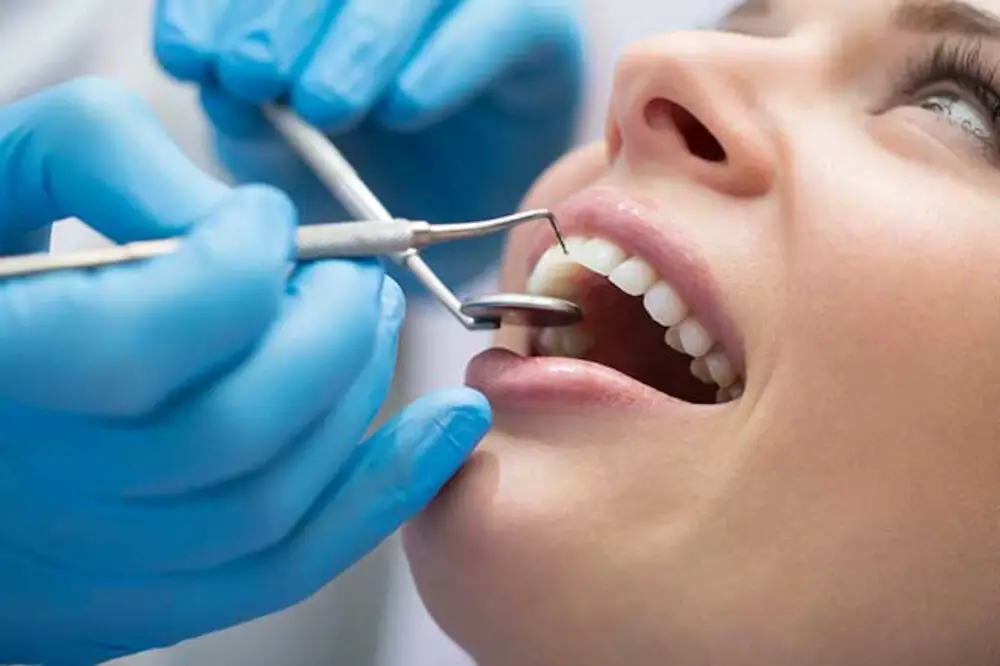Why Does My Dog Grind His Teeth? Understanding the Causes and Solutions

Dogs are man’s best friends, and their behavior can tell us a lot about their health and well-being. One of the most common problems that dog owners encounter is when their furry friend begins to grind their teeth. It may seem like a small issue, but it can be a sign of underlying problems that require attention. Understanding the causes and solutions of this behavior is important for any pet owner who wants to ensure their dog’s overall health and happiness. Dogs grind their teeth for various reasons, and it can be difficult to determine the exact cause without the help of a veterinarian. However, it’s essential to recognize the early signs and symptoms to prevent the issue from becoming more severe. In this article, we will explore the possible reasons why your dog may be grinding their teeth, from simple dental issues to more severe medical conditions. We will also discuss the different solutions available to help your furry friend stop this behavior and return to their happy and healthy selves.
Teeth grinding, also known as bruxism, is a common problem among dogs that can be caused by a variety of issues, including dental problems, stress, anxiety, or pain. Grinding teeth can cause damage to teeth, facial muscles, and jaw joint, leading to more serious health problems if left untreated. If you notice your dog grinding his teeth, it is important to determine the underlying cause and seek appropriate treatment. This may involve a visit to the vet, behavior modification, or medication. Understanding the causes and solutions of teeth grinding in dogs can help you provide the best care for your furry friend.
Understanding the problem is crucial when it comes to addressing any issue, and the same applies to our furry friends. When it comes to dogs grinding their teeth, it’s important to understand the underlying causes before finding solutions. Grinding teeth in dogs can be a sign of pain, anxiety, or even dental issues. By taking the time to understand the root cause, we can provide the appropriate care and treatment to alleviate discomfort and promote a happy and healthy lifestyle for our beloved pets. Rushing into solutions without understanding the problem can lead to ineffective or even harmful interventions, so it’s essential to take a step back and assess the situation before taking action.
The purpose of this article is to provide dog owners with a comprehensive understanding of the causes and solutions for teeth grinding in dogs. Teeth grinding in dogs is a common problem that can be caused by a variety of factors such as anxiety, dental issues, pain, and neurological disorders. Therefore, it is important for dog owners to identify the underlying cause of their dog’s teeth grinding to prevent future health problems. In this article, we will discuss the various causes of teeth grinding in dogs and provide practical tips and solutions to help dog owners alleviate their dog’s discomfort and prevent further damage to their teeth.
What is Teeth Grinding in Dogs?

Teeth grinding or bruxism is a common dental problem in dogs that can affect their oral health and overall wellbeing. It is a condition where dogs clench or grind their teeth, often accompanied by a clicking or popping sound. Dogs may develop bruxism due to various reasons, including stress, anxiety, jaw misalignment, dental problems, and even pain. Over time, teeth grinding can lead to the wearing down of teeth, tooth fractures, and gum inflammation, causing discomfort and pain to the dog. Therefore, it is essential to identify the underlying cause of bruxism in dogs and treat it accordingly to prevent any adverse effects on their dental health. Some common symptoms of teeth grinding in dogs include excessive drooling, swollen gums, reluctance to eat, difficulty opening the mouth, and blood on chew toys or food bowls. If you notice any of these signs, it is recommended to take your dog to a veterinarian for a thorough dental examination. A vet can determine the cause of bruxism and suggest appropriate treatment options, such as teeth alignment, dental cleaning, or medication to reduce stress and anxiety. With proper care and treatment, teeth grinding in dogs can be managed effectively, and your furry friend can enjoy a healthy and happy life.
Teeth grinding, also known as bruxism, is a condition where dogs grind their teeth together with a scraping or clenching sound. This phenomenon is often a sign of discomfort or pain, which can be caused by various factors such as dental issues, stress, anxiety, and neurological disorders. Dogs may also grind their teeth due to malocclusion, where the teeth are not properly aligned, or as a response to medication. In rare cases, teeth grinding can lead to serious dental problems, including tooth loss, gum damage, and jaw fractures. Therefore, it is essential to identify the underlying cause of teeth grinding in dogs and seek appropriate treatment to prevent further complications.
There are two main types of teeth grinding in dogs: awake and sleep bruxism. Awake bruxism is when dogs grind their teeth while they’re conscious, often as a response to stress or anxiety. This can also be a sign of dental issues, such as a misaligned bite or tooth decay. Sleep bruxism, on the other hand, occurs during deep sleep and is usually caused by a neurological or muscular condition. Both types of teeth grinding can cause damage to a dog’s teeth and should be addressed by a veterinarian. Treatment options may include addressing underlying medical issues, behavior modification techniques, and in severe cases, medications.
When it comes to understanding why your dog is grinding their teeth, it’s important to pay attention to the signs and symptoms they’re exhibiting. If you notice your dog grinding their teeth frequently or excessively, it may be a sign of underlying dental issues or stress. Other symptoms to look for include drooling, mouth sensitivity, and changes in eating habits. Additionally, if your dog is exhibiting signs of stress, such as pacing or hiding, it may be a good idea to speak with your veterinarian about potential solutions. By being mindful of your dog’s behavior and seeking expert advice, you can help alleviate any discomfort they may be experiencing.
Causes of Teeth Grinding in Dogs

Teeth grinding or bruxism is a common problem in dogs that can have various causes. One of the most common reasons for teeth grinding in dogs is dental problems. Dental issues such as periodontal disease, abscesses, and broken teeth can cause discomfort and pain, leading to teeth grinding. It is essential to take your dog to the vet for regular dental check-ups to identify dental problems early and prevent them from becoming more severe. Additionally, providing your dog with dental chews and toys can help keep their teeth healthy, reducing the likelihood of dental problems and teeth grinding. Stress and anxiety can also cause teeth grinding in dogs. Just like in humans, stress and anxiety can manifest in jaw clenching and teeth grinding. Some common stressors for dogs include changes in their environment, separation anxiety, and fear of loud noises. Providing your dog with a safe and comfortable environment, regular exercise, and positive reinforcement training can help reduce stress and anxiety levels, reducing the likelihood of teeth grinding. If your dog’s teeth grinding persists despite these interventions, it is essential to consult with your veterinarian to rule out any underlying medical conditions.
Teeth grinding, or bruxism, in dogs can have numerous medical reasons. Dental issues such as misaligned teeth, periodontal disease, or a foreign object lodged between teeth can cause pain and discomfort, leading to grinding. Additionally, neurological disorders such as epilepsy and brain tumors can also cause teeth grinding. Painful conditions such as arthritis or temporomandibular joint disorder (TMJ) can also result in teeth grinding. In some cases, stress and anxiety can also contribute to teeth grinding. Identifying and addressing the underlying medical issue is crucial in treating teeth grinding in dogs.
Behavioral reasons for teeth grinding in dogs are often related to anxiety, stress or frustration. Dogs may grind their teeth as a way to cope with these emotions or as a form of self-soothing. This behavior can also be seen in dogs who are overly excited or have excessive energy. In some cases, dogs may grind their teeth due to boredom or as a way to release pent-up energy. It is important to identify the underlying cause of the behavior in order to address it effectively. Providing mental and physical stimulation, as well as practicing relaxation techniques, can help reduce teeth grinding in dogs caused by behavioral factors.
Stress and anxiety are significant factors that can cause a dog to grind their teeth. Dogs, like humans, can feel stress and anxiety due to environmental factors like loud noises, unfamiliar surroundings or changes in their routine. Additionally, dogs can experience separation anxiety or stress when left alone for extended periods. This can lead to teeth grinding as a way to cope with their anxiety. It’s essential to identify the root cause of the stress and anxiety to address the problem effectively. Providing a safe and comfortable environment, exercise, and mental stimulation can help reduce stress and anxiety levels in dogs, which can reduce teeth grinding behavior.
How to Prevent Teeth Grinding in Dogs

Teeth grinding in dogs, also known as bruxism, can be a sign of an underlying dental or health issue. In order to prevent this behavior, it is important to identify the cause of the teeth grinding. One common cause is dental problems such as gum disease or a broken tooth, which can be addressed through regular dental checkups and cleanings. Another cause can be stress or anxiety, which can be alleviated through exercise, mental stimulation, and positive reinforcement training. Additionally, providing your dog with appropriate chew toys and bones can help prevent teeth grinding by promoting healthy chewing habits. In some cases, medication may be necessary to treat underlying health conditions that may be causing teeth grinding. If your dog’s teeth grinding is persistent or severe, it is important to consult with a veterinarian to rule out any underlying health issues. By identifying and addressing the underlying cause of teeth grinding, you can help prevent further damage to your dog’s teeth and ensure their overall health and well-being.
Regular dental care is an essential aspect of maintaining your dog’s overall health and well-being. Just like humans, dogs can suffer from a range of dental problems such as gum disease, tooth decay, and even tooth loss. These issues can cause pain and discomfort for your furry friend, leading to difficulty eating and even behavioral changes. To prevent these problems from occurring, it’s important to prioritize dental care for your dog. This can include regular teeth brushing, providing dental chews and toys, and scheduling regular check-ups with your veterinarian. By taking these steps, you can help ensure that your dog’s teeth and gums remain healthy and strong for years to come.
While discussing the cause and solution of teeth grinding in dogs, it is important to emphasize the significance of proper diet and nutrition. A balanced diet that meets the nutritional requirements of the dog, along with appropriate hydration, is essential for maintaining good oral health. A poor diet can result in dental problems such as gum disease, tooth decay, and tooth loss, which can lead to teeth grinding. Additionally, some dogs may have food allergies or sensitivities that can cause discomfort and, in turn, lead to teeth grinding. Therefore, it is crucial to consult with a veterinarian to ensure that the dog is receiving a healthy and balanced diet, which can contribute to the prevention of teeth grinding and other oral health issues.
Training and behavioral modification techniques can be effective solutions to address teeth grinding in dogs. Positive reinforcement techniques such as offering treats and praise for good behavior, can encourage dogs to stop grinding their teeth. It is important to identify the underlying cause of the behavior and address it appropriately through training and modification. For example, if the dog is grinding their teeth due to anxiety or stress, techniques such as desensitization and counter-conditioning can help them learn to cope with these triggers in a more positive way. Consistency and patience are key when implementing these techniques, as it may take time for the dog to learn and adopt new behaviors. Seeking the guidance of a professional dog trainer or behaviorist is recommended to ensure the most effective and humane methods are being used.
Treatment Options for Teeth Grinding in Dogs

Teeth grinding, scientifically known as bruxism, in dogs can be quite a concerning issue for pet owners. Apart from the unpleasant noise, it can indicate an underlying health problem. If left untreated, it can cause dental issues, jaw pain, and even affect the overall quality of life of your furry companion. Fortunately, there are several treatment options available to manage teeth grinding in dogs. One of the most common treatment options for bruxism in dogs is addressing the underlying cause. Dental issues, anxiety, and stress are some of the common causes of teeth grinding in canines. If the grinding is caused by dental problems, a dental cleaning or extraction may be necessary. For anxiety-related bruxism, calming remedies like CBD oil, herbal supplements, or behavioral therapy can be helpful. In some cases, a change in diet or exercise routine may also be necessary to address the root cause of the grinding. By identifying and treating the underlying cause, pet owners can effectively manage teeth grinding in their furry companions. In addition to addressing the underlying cause, there are also several other treatment options available to manage teeth grinding in dogs. Dental guards or mouthguards are commonly used to protect the teeth and prevent further damage. These devices are custom-made to fit your dog’s mouth and can help to reduce the noise and discomfort associated with bruxism. Additionally, medication may be prescribed to manage pain and inflammation associated with teeth grinding. Muscle relaxants and anti-inflammatory drugs may be recommended by a veterinarian to manage bruxism in dogs. By utilizing a combination of these treatment options, pet owners can effectively manage teeth grinding in their furry companions and improve their overall quality of life.
Medical treatments for underlying conditions that cause teeth grinding in dogs will depend on the nature and severity of the condition. For example, if the dog has a dental problem, such as a cracked tooth or gum disease, dental treatment may be necessary to alleviate the pain and discomfort that is causing the grinding. Additionally, if anxiety or stress is causing the teeth grinding, behavioral therapy and medication can be used to help manage these underlying conditions. It is important to identify and address the root cause of the teeth grinding in dogs to ensure their overall health and well-being. Consultation with a veterinarian is recommended to determine the most appropriate course of action.
Mouth guards and dental splints are dental appliances commonly used to address teeth grinding in dogs. Mouth guards are typically made of soft, pliable materials that are molded to fit over the teeth and cushion them from the force of grinding. They can be custom-made by a veterinarian or purchased over-the-counter. Dental splints, on the other hand, are more rigid and are used to stabilize the jaw and prevent grinding. They are often recommended for dogs with severe or chronic grinding issues. Both mouth guards and dental splints can be effective solutions for dogs who grind their teeth, but they should only be used under the guidance of a veterinarian to ensure proper fit and usage.
While teeth grinding in dogs can be caused by a variety of factors, anxiety and stress are common culprits. In some cases, medication may be prescribed to help reduce these underlying issues. Benzodiazepines, such as alprazolam and diazepam, can be effective in treating anxiety disorders in dogs. These medications work by enhancing the effects of a neurotransmitter called gamma-aminobutyric acid (GABA), which helps to calm the brain and reduce feelings of anxiety. Other medications, such as selective serotonin reuptake inhibitors (SSRIs), may also be used to treat anxiety and stress in dogs. However, it is important to note that medication should always be used in conjunction with behavior modification techniques to address the root cause of the anxiety or stress.
The article \Why Does My Dog Grind His Teeth: Understanding the Causes and Solutions\ explains that teeth grinding in dogs, also known as bruxism, can be caused by various factors such as anxiety, dental problems, or jaw misalignment. It is important to identify the root cause of the behavior in order to find an effective solution. Solutions can include providing a calm and stress-free environment, addressing any dental issues with professional help, or using medication to alleviate pain. Moreover, it is crucial to consult a veterinarian to rule out any underlying medical conditions and to prevent further damage to your pet’s teeth and health.
Seeking veterinary care is crucial for the overall health and well-being of our pets. Regular check-ups and preventative measures can help identify and address any potential health issues before they become serious problems. In the case of teeth grinding in dogs, it could be a sign of underlying dental issues or pain that requires attention from a veterinarian. Ignoring the issue could lead to further dental problems, discomfort and even affect their behavior and mood. It’s important to prioritize our pets’ health and seek professional care when needed to ensure they lead happy and healthy lives.
If you notice that your dog is grinding their teeth, it’s essential to take action and address the issue. Ignoring the problem can lead to serious dental issues, pain, and discomfort for your furry friend. Don’t let fear or uncertainty hold you back from seeking help. Consult with a veterinarian to determine the root cause of the issue and develop a plan of action. Whether it’s a dental problem or a sign of anxiety, there are solutions available to help your dog feel better. By taking action, you’re showing your dog that you care for their well-being and are committed to ensuring they live a healthy and happy life.
Conclusion

In conclusion, understanding why your dog grinds his teeth is essential in identifying the root cause of the problem and finding the right solution. Teeth grinding in dogs may be caused by various factors, including dental issues, anxiety, pain, or even boredom. It is important to consult with your veterinarian to properly diagnose and treat the underlying cause of teeth grinding. Some solutions may include medication, behavioral modification techniques, or addressing the dental issue through professional cleaning or extraction. Taking the necessary steps to address your dog’s teeth grinding can help improve their overall dental health and quality of life.





